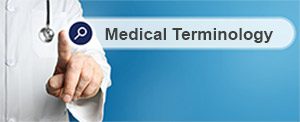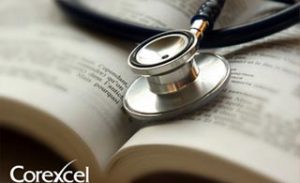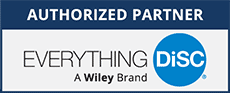 In the slow return to normalcy after the pandemic, career change, and simply finding a job again, is on everyone’s mind. As employers are concerned about the shortage of skilled workers, people are looking for an industry they can lend their services to. Following a career path today can mean maneuvering many twists and turns, setbacks, side roads, and blind alleys. Where is the path to a new career that provides enrichment, stability and growth potential?
In the slow return to normalcy after the pandemic, career change, and simply finding a job again, is on everyone’s mind. As employers are concerned about the shortage of skilled workers, people are looking for an industry they can lend their services to. Following a career path today can mean maneuvering many twists and turns, setbacks, side roads, and blind alleys. Where is the path to a new career that provides enrichment, stability and growth potential?
Learn Medical Terminology Online
The best way to increase your marketability is to broaden your skill set. Since continuing education is often required to maintain licenses and certifications, go ahead and boost your resume. The right training can mean more opportunities in your current field or serve as a stepping stone to a new career. Which industries offer the best chance for job stability and advancement? According to the Bureau of Labor Statistics’ Occupational Outlook Handbook, jobs using medical terminology range from medical assistants to dental hygienists, who earn a median pay of $77,090.
A basic requirement for entry into almost any healthcare-related career is a command of medical terminology. The ability to recognize, understand, spell, and pronounce basic medical terms is necessary to perform well in any medical setting. And learning how to identify medical abbreviations and decipher unfamiliar words using roots, suffixes, and prefixes is most easily learned in a medical terminology course online.
Below are some jobs that use medical terminology skills on a daily basis:
Medical Transcription – To understand and accurately transcribe dictated reports, medical transcriptionists must understand medical terminology, anatomy and physiology, diagnostic procedures, pharmacology, and treatment assessments. They also must be able to translate medical jargon and abbreviations into their expanded forms.
Medical Records and Health Information – In addition to general education, coursework requirements for medical records and health information technicians includes medical terminology, anatomy and physiology, legal aspects of health information, health data standards, coding and abstraction of data, statistics, database management, quality improvement methods, and computer science.
Surgical Technology – Surgical technologists receive their training in formal programs offered by community and junior colleges, vocational schools, universities, hospitals, and the military. Programs last from nine to 24 months and lead to a certificate, diploma, or associate degree. Programs provide classroom education and supervised clinical experience. Students take courses in anatomy, physiology, microbiology, pharmacology, professional ethics, and medical terminology. Other topics covered include the care and safety of patients during surgery, sterile techniques, and surgical procedures. Students also learn to sterilize instruments; prevent and control infection; and handle special drugs, solutions, supplies, and equipment. Most employers prefer to hire certified technologists.
Occupational Therapy – The first year of study in an accredited occupational therapist assistant program typically involves an introduction to health care, basic medical terminology, anatomy, and physiology. In the second year, courses are more rigorous and usually include occupational therapist courses in areas such as mental health, adult physical disabilities, gerontology, and pediatrics. Students also must complete 16 weeks of supervised fieldwork in a clinic or community setting.
Radiologic Technology – The Joint Review Committee on Education in Radiologic Technology accredits most formal training programs for the field. The programs provide both classroom and clinical instruction in anatomy and physiology, patient care procedures, radiation physics, radiation protection, principles of imaging, medical terminology, positioning of patients, medical ethics, radiobiology, and pathology..
Medical Assistant – Post-secondary medical assisting programs are offered in vocational-technical high schools, post-secondary vocational schools, and community and junior colleges. Programs usually last either one year and result in a certificate or diploma, or two years and result in an associate degree. Courses cover anatomy, physiology, and medical terminology, as well as typing, transcription, record-keeping, accounting, and insurance processing. Students learn laboratory techniques, clinical and diagnostic procedures, pharmaceutical principles, the administration of medications, and first aid. They also study office practices, patient relations, medical law, and ethics. There are various organizations that accredit medical assisting programs, and accredited programs often include an internship that provides practical experience in physicians’ offices, hospitals, or other health care facilities.
Emergency Medicine (EMT) – Emergency medicine is a fast-growing field with first responders such as EMTs, paramedics, and firefighters taking the lead. Most positions in this field require training and certification, though not necessarily a degree. Medical terminology and anatomy & physiology courses are often required as part of private certification programs or as prerequisites for state-licensed exams.
Dental Hygiene – Dental hygienists must be licensed in the state they work in. Standards will vary by state licensing board, but an accredited associate’s degree is usually the minimum education required. Medical terminology and anatomy & physiology are often part of the core curriculum for these degrees. With a median income above $70,000, dental hygiene is quickly becoming a sought after career.
In addition to these medical terminologist jobs, many other professionals can benefit from an understanding of medical terminology. Lawyers, paralegals, legal secretaries and other legal professionals handling cases involving medical-related issues are better able to litigate these cases when they understand the terminology involved. Health insurance professionals, as well as those working in medical billing and coding positions also benefit from a working knowledge of medical terminology.
Many agencies require a certificate in medical terminology for pharmacy technicians. Professionals and technicians of biology, hospital administration and many others must properly utilize medical terminology skills to communicate with patients, staff, customers and colleagues. Therapists, technicians, counselors and home health care providers can improve patient safety and patient experience, while providing more efficient care and reducing oversights and liability issues with a clear understanding of medical terminology.
An online medical terminology course is a widely accessible means to broaden your skill set, boost your marketability, and increase opportunities for advancement in your current career while helping you map a route to exciting work in the healthcare industry. Doubling the value of your time and education leads to better employment that will enrich your life.
 In the slow return to normalcy after the pandemic, career change, and simply finding a job again, is on everyone’s mind. As employers are concerned about the shortage of skilled workers, people are looking for an industry they can lend their services to. Following a career path today can mean maneuvering many twists and turns, setbacks, side roads, and blind alleys. Where is the path to a new career that provides enrichment, stability and growth potential?
In the slow return to normalcy after the pandemic, career change, and simply finding a job again, is on everyone’s mind. As employers are concerned about the shortage of skilled workers, people are looking for an industry they can lend their services to. Following a career path today can mean maneuvering many twists and turns, setbacks, side roads, and blind alleys. Where is the path to a new career that provides enrichment, stability and growth potential?
 Medical terminology is used in various healthcare professions. To help guide you through what medical terminology really consists of, we decided to share some frequently asked questions.
Medical terminology is used in various healthcare professions. To help guide you through what medical terminology really consists of, we decided to share some frequently asked questions. .
. 




